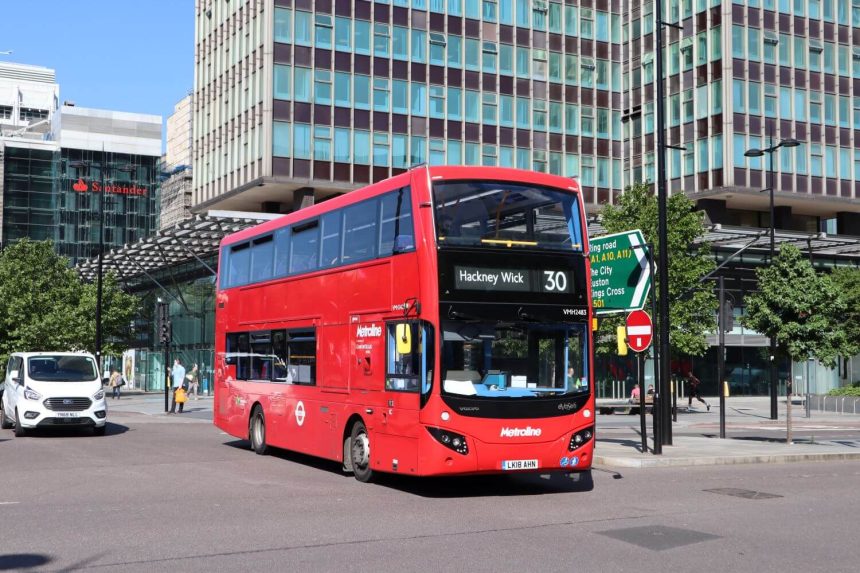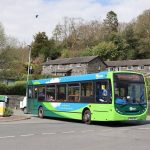Old meets new at Holloway Bus Garage — an appropriate venue at which to talk about some of the issues of the recent past, present and future facing the bus sector in London.
It was a site which started life as Holloway Tram Depot in 1907 and, in 2019, the first fully-electric double-deck route in London was operated from there.
In a meeting set up by C9 Recruitment, which focuses particularly on coach and bus, the difficulty of filling driver and other key roles was a hot topic.
However, electric buses, congestion in the capital, the new Superloop services and what local authorities can learn from London were also on the agenda as we talked to Steve Harris, Chief Operating Officer for Metroline London, and Phil Gerhardt, Head of Bus Performance at Transport for London (TfL).
The recruitment challenge
Sam kicks off the conversation about recruitment, which continues to be an issue for operators despite the excellent work done by C9.
Steve refers to the suggestion that the driver shortage may be easing, saying: “My sense is we’re over the worst, but there is always that little bit that says we don’t know what’s round the corner.”
Metroline organises a series of initiatives to combat the problem, for example holding open days at depots which help prospective job candidates gain a more realistic view of what the role involves.
“We’re finding, through our surveys, that the actual perception of the job is very different to the reality,” he says.
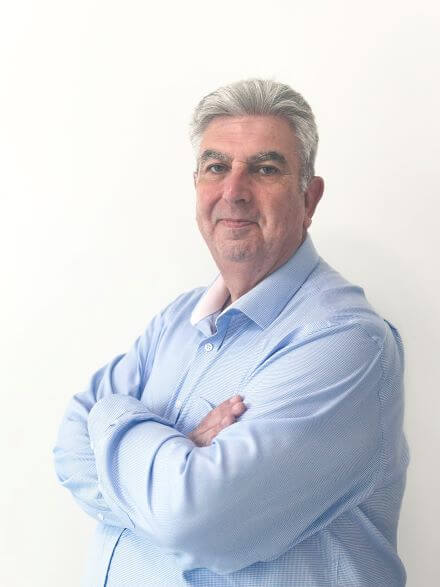
“People look at a bus driver and think, ‘that’s easy, I can do that, it’s just driving’. But it’s customer service, vehicle defect-checking, route knowledge, and they can even be tour operators in some parts of London for the tourists.
“We’re doing pieces of work around familiarisation days when they can come in for a day and spend time with our mentors and see what it’s like to work in a bus garage.”
Targeting women as potential drivers is another angle which the operator sees as a solution. Of Metroline’s 4,000 drivers, the business says 12-13% are women, which would put it slightly ahead of the national average of 11% cited by the Office for National Statistics (ONS).
This is well above the 6% that the operator reported 20 years ago, but the industry as a whole clearly has opportunity for improvement. Among the challenges are the perception of the role and the traditional image of the bus depot as a male-dominated environment.
“We’re trying very hard to break that perception through our affiliation with Women in Bus and Coach, which is a great initiative that we sponsor,” Steve says.
“We’re looking at new uniform to better reflect the female form because some of the feedback we’ve had is that some of the uniform isn’t particularly flattering.
“We’ve carried out a number of pledges over flexible working, provided free sanitary wear in the toilets. It’s been well received. We’re also looking at female mentors.
My sense is we’re over the worst [on driver shortages], but there is always that little bit that says we don’t know what’s round the corner – Steve Harris
“We’re trying to do many things, but it’s a slow burner. It will take time to change that perception and lots of different things will come together to do that.”
Four of the eight Metroline garage managers in London are women and Steve says that ratio is reflected at all management grades. When it comes to engineering, Steve says Metroline engages frequently with schools to target the talent of tomorrow.
Pioneering zero-emissions
Buses in London have led the way when it comes to new energy. Aside from the above-noted first for Holloway, Metroline in 2021 launched the first hydrogen fleet of double-decker buses in England.
The adoption of hydrogen buses has had limited take-up among bus operators compared to battery-electric, of which Metroline has 160 at its 12 garages in the capital — compared to those 20 hydrogen examples. Steve notes the supply of hydrogen has been an issue.
“The actual product itself is very good,” he says. “We’ve had a couple of blips in the supply chain which seem to be over with now. We’ve got another plant online as well, so the supply of it has evened itself out.
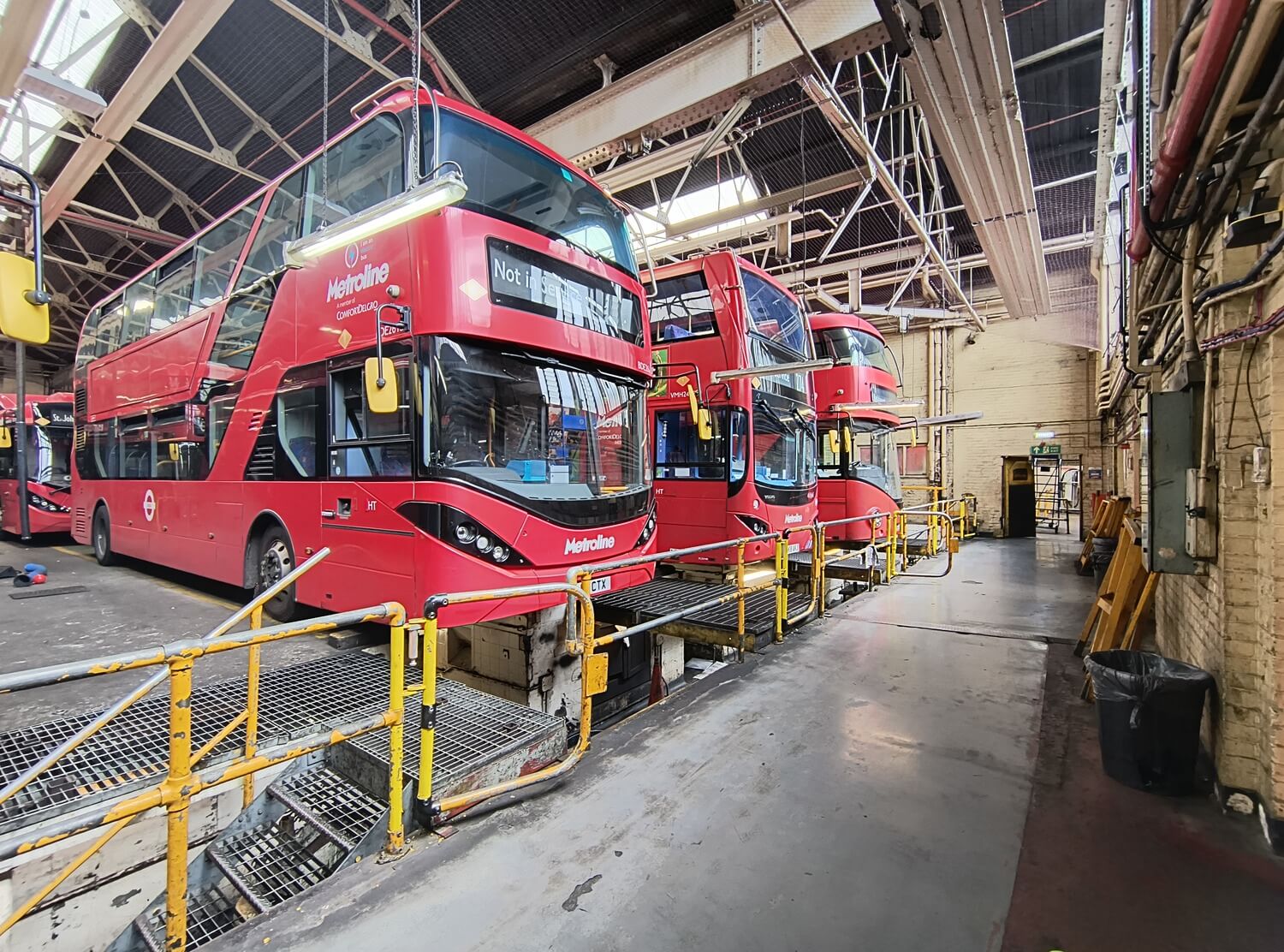
“As with any new technology, you have to go with it and accept some of the challenges. I think we’ve got past the experimental stage now and they’re fully implemented, and I think they’re here to stay.”
Another pioneering move from Metroline was the trial of a diesel-to-electric repower. Of the success of that, Steve notes: “The battery reliability let us down, although when it was working, it had a really good range on it.”
The power of Superloop
TfL has invested heavily in its Superloop express services, which it started to roll out last year. Mainly circumnavigating outer London, the “loop” will be completed when the last of the 10 routes launches next year.
Metroline, which operates about 16% of London’s bus mileage, runs the SL8, formerly the 607 from Uxbridge to White City.
The Superloop is much more than a rebranding exercise, Phil is keen to point out. The express services are at the forefront of the bid to make bus more appealing and they therefore receive the “rock star” treatment, as he puts it.
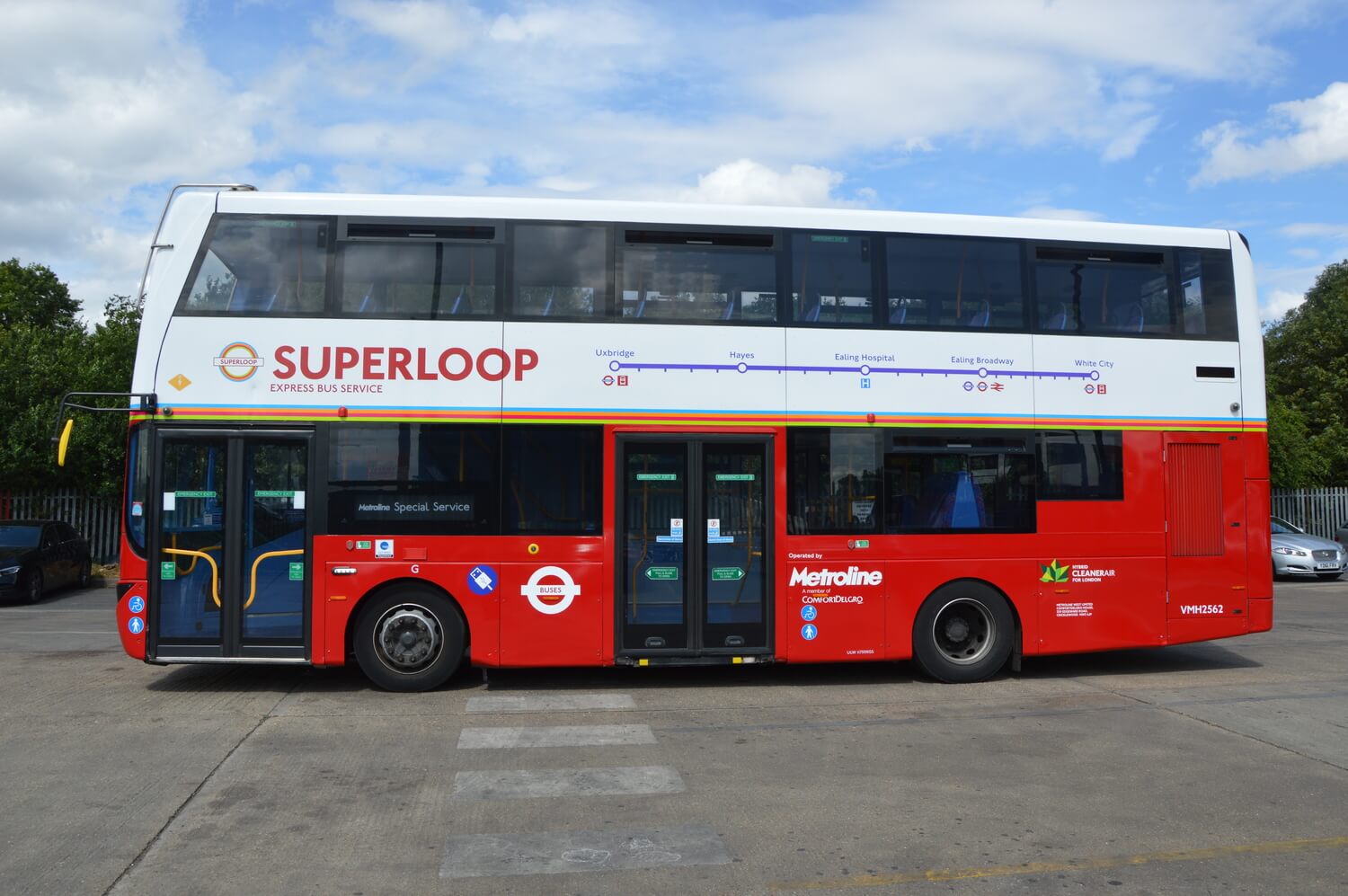
“When we looked at Superloop, we made sure that every aspect of the routes was set up to deliver. We put in a real focus around bus priority,” says Phil, who points out that buses on the routes get priority at all traffic lights.
“We’re constantly going back and reviewing it as the traffic conditions are constantly changing. We put them to the top of our agenda because they’re so key as our express network.”
The outer London network added six million kilometres in the first year, and its average growth on all routes since June 2023 has been 9% higher than the network average.
Congestion and patronage
Despite the claimed success of Superloop, London has been hit by the growing challenge of congestion, which has been said to have negatively impacted patronage overall.
Although London is a long way ahead of any local authority on passenger journeys per head, according to ONS, it is at only 71% of its 2010 level.
We’re not necessarily saying that what we do is the best or the only way to deliver. We’re always keen to learn from other cities – Phil Gerhardt
Steve says it is not only impacting on performance but also on drivers. “Where there is high congestion, drivers do not want to come in and do overtime because they’re going to take 45 minutes to get work,” he says.
TfL’s massive programme of analysing bus performance across the network is working to assist in combating the problem. Phil explains: “We’re really keen to try to grow patronage.
“What we’re trying to do proactively is make bus the go-to travel and speed the bus up as much as possible to get them to the stage where they’re express services, for example, and make them a reliable and attractive option. We’re doing a lot of work internally around reliability and bus priority.”
He acknowledges the battle for road space in the capital. Some — such as Transport Investment Limited Director David Leeder — argue that the balance has been tipped too far away from buses and towards cycling.
“Whenever there are decisions with boroughs or on our network, bus always has a say in that,” Phil responds. “There are times when buses may potentially lose time through not having as much road space as previously but, elsewhere, on the network they will be getting that back through bus priority, etc.”
The latest data on bus performance can be vital for improving the speed of bus services and both Phil and Steve suggest the post-pandemic shift to working from home, particularly on Mondays and Fridays and widely noticed in London, could be factored into future consideration.
Phil adds: “We are looking at how we can optimise schedules to deliver and respond to a change in traffic conditions.
“Can we use open data sources, in addition to our iBus data, to help optimise schedules at source? Rather than schedule for a Monday to Friday on a certain peak, etc, should we be looking at different schedules for different days of the week, for example?”
Lessons on franchising
With Labour’s plans to give local authorities powers in England to franchise bus services, many will be looking to the long-established example of regulated services in London for lessons.
Phil says many local leaders have a close eye on Superloop to see if it is worth replicating such an express service around their own cities. In that regard and in others, TfL is keen to share best practice.
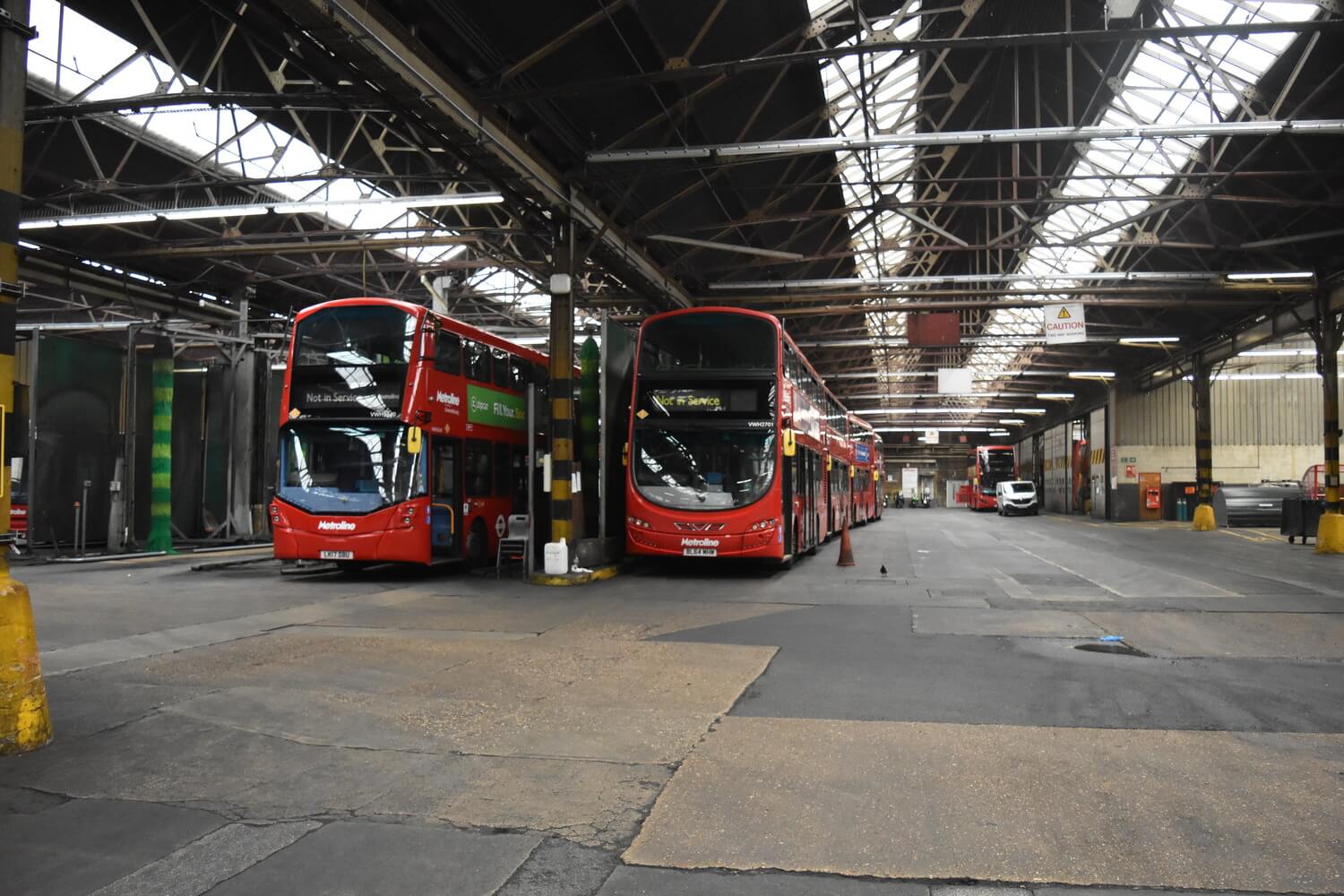
As to what others might learn from London’s bus transport network, Phil says: “Probably the biggest thing for me is having a good working relationship with operators. The way the model works, it has a vested interest for both parties to deliver and improve reliability and the service for the customer.
“But we’re not necessarily saying that what we do is the best or the only way to deliver. We’re always keen to learn from other cities.”
While the debate over franchising versus deregulation will continue, Steve points out the advantage from an operator point of view: “You want to be sure of your revenue but, if you’re in a commercial market, you’re never sure and that’s why you’ve seen bus companies like Arriva pull out of High Wycombe, etc.
“If you’re sure of your revenue and it’s guaranteed, you can take bold decisions.”
Looking to recruit drivers? Receive 10% discount with C9 Recruitment by using code ‘routeone10’.





















